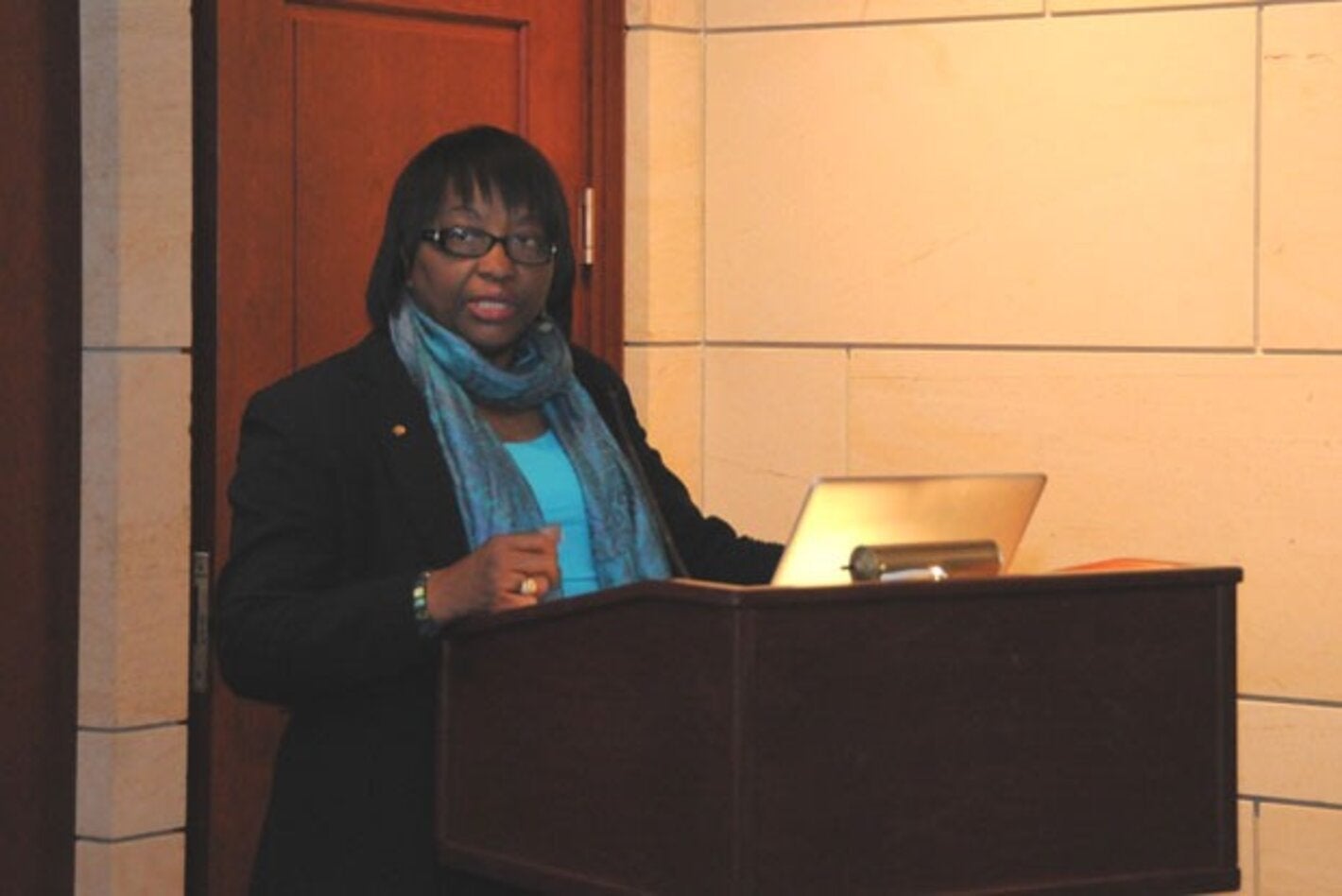
Washington, D.C., 12 December 2013 (PAHO/WHO)—The impressive gains described in the 2013 World Malaria Report—including some 3.3 million lives saved since 2000—would not have been possible without the financial and political commitment of the United States government and other international partners, said Dr. Carissa F. Etienne, Director of the Pan American Health Organization/World Health Organization (PAHO/WHO), at a special event at the U.S. Capitol.
"The United States government has been an important ally throughout the global fight against malaria," Etienne told a group of congress members and staff gathered to celebrate the launch this week of the new report."The President's Malaria Initiative is among the largest financial and technical investments in the countries that are most in need, particularly in the African countries."
The 2013 World Malaria Report, released Dec. 11 in a press briefing at the National Press Club in Washington, D.C., shows that malaria mortality has declined 45% globally and 70% in the Americas since 2000, and malaria incidence has declined 29% globally and 58% in the Americas.
Rep. Ander Crenshaw of Florida noted that 90% of the lives saved globally were those of children and that continuing investments are needed to maintain these gains and ensure additional progress.
"While we are making great strides, while we are making great gains, we still have to keep it up," said Rep. Crenshaw.
Dr. Robert Newman, Director of the WHO Global Malaria Programme, said the gains cited in the report were important not only for humanitarian reasons but also because "this is not just a health issue. Malaria and poverty are inextricably linked. Malaria affects not only Millennium Development Goal number 6, it also impacts MDGs 4, 5, 1 and 3." He added: "We know today that we can prevent every case of malaria with just a $5 bed net, a 50-cent diagnostic test, and a $1 malaria treatment. We cannot let this fabulous progress come undone."
PAHO Director Etienne said, that in addition to the efforts of international partners, the good news in the new malaria report reflects the efforts of communities and countries in malaria-affected regions.
"The real heroes are the many men and women in the communities who work with various partners on the front lines and whose names will probably remain unknown. They are the ones who make the real difference on the ground and make this whole process worthwhile and inspiring."
Other participants in the Capitol Hill event included Senator John Boozman of Arkansas; Rear Admiral Timothy Ziemer, U.S. Global Malaria Coordinator, President's Malaria Initiative; Dr. Fatoumata Nafo-Traoré, Executive Director, Roll Back Malaria Partnership; and Martin Edlund, CEO of Malaria No More, which hosted the event.



